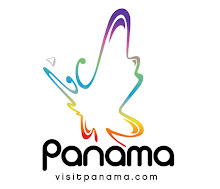Crossposted with TomDispatch.com. This piece is adapted from a talk given in Amsterdam in March. See video below.
The democracy uprising in the Arab world has been a spectacular display of courage, dedication, and commitment by popular forces -- coinciding, fortuitously, with a remarkable uprising of tens of thousands in support of working people and democracy in Madison, Wisconsin, and other U.S. cities. If the trajectories of revolt in Cairo and Madison intersected, however, they were headed in opposite directions: in Cairo toward gaining elementary rights denied by the dictatorship, in Madison towards defending rights that had been won in long and hard struggles and are now under severe attack.
Each is a microcosm of tendencies in global society, following varied courses. There are sure to be far-reaching consequences of what is taking place both in the decaying industrial heartland of the richest and most powerful country in human history, and in what President Dwight Eisenhower called "the most strategically important area in the world" -- "a stupendous source of strategic power" and "probably the richest economic prize in the world in the field of foreign investment," in the words of the State Department in the 1940s, a prize that the U.S. intended to keep for itself and its allies in the unfolding New World Order of that day.
Despite all the changes since, there is every reason to suppose that today's policymakers basically adhere to the judgment of President Franklin Delano Roosevelt’s influential advisor A.A. Berle that control of the incomparable energy reserves of the Middle East would yield "substantial control of the world." And correspondingly, that loss of control would threaten the project of global dominance that was clearly articulated during World War II, and that has been sustained in the face of major changes in world order since that day.
From the outset of the war in 1939, Washington anticipated that it would end with the U.S. in a position of overwhelming power. High-level State Department officials and foreign policy specialists met through the wartime years to lay out plans for the postwar world. They delineated a "Grand Area" that the U.S. was to dominate, including the Western hemisphere, the Far East, and the former British empire, with its Middle East energy resources. As Russia began to grind down Nazi armies after Stalingrad, Grand Area goals extended to as much of Eurasia as possible, at least its economic core in Western Europe. Within the Grand Area, the U.S. would maintain "unquestioned power," with "military and economic supremacy," while ensuring the "limitation of any exercise of sovereignty" by states that might interfere with its global designs. The careful wartime plans were soon implemented.
It was always recognized that Europe might choose to follow an independent course. NATO was partially intended to counter this threat. As soon as the official pretext for NATO dissolved in 1989, NATO was expanded to the East in violation of verbal pledges to Soviet leader Mikhail Gorbachev. It has since become a U.S.-run intervention force, with far-ranging scope, spelled out by NATO Secretary-General Jaap de Hoop Scheffer, who informed a NATO conference that "NATO troops have to guard pipelines that transport oil and gas that is directed for the West," and more generally to protect sea routes used by tankers and other "crucial infrastructure" of the energy system.
Grand Area doctrines clearly license military intervention at will. That conclusion was articulated clearly by the Clinton administration, which declared that the U.S. has the right to use military force to ensure "uninhibited access to key markets, energy supplies, and strategic resources," and must maintain huge military forces "forward deployed" in Europe and Asia "in order to shape people's opinions about us" and "to shape events that will affect our livelihood and our security."
The same principles governed the invasion of Iraq. As the U.S. failure to impose its will in Iraq was becoming unmistakable, the actual goals of the invasion could no longer be concealed behind pretty rhetoric. In November 2007, the White House issued a Declaration of Principles demanding that U.S. forces must remain indefinitely in Iraq and committing Iraq to privilege American investors. Two months later, President Bush informed Congress that he would reject legislation that might limit the permanent stationing of U.S. Armed Forces in Iraq or "United States control of the oil resources of Iraq" -- demands that the U.S. had to abandon shortly after in the face of Iraqi resistance.
In Tunisia and Egypt, the recent popular uprisings have won impressive victories, but as the Carnegie Endowment reported, while names have changed, the regimes remain: "A change in ruling elites and system of governance is still a distant goal." The report discusses internal barriers to democracy, but ignores the external ones, which as always are significant.
The U.S. and its Western allies are sure to do whatever they can to prevent authentic democracy in the Arab world. To understand why, it is only necessary to look at the studies of Arab opinion conducted by U.S. polling agencies. Though barely reported, they are certainly known to planners. They reveal that by overwhelming majorities, Arabs regard the U.S. and Israel as the major threats they face: the U.S. is so regarded by 90% of Egyptians, in the region generally by over 75%. Some Arabs regard Iran as a threat: 10%. Opposition to U.S. policy is so strong that a majority believes that security would be improved if Iran had nuclear weapons -- in Egypt, 80%. Other figures are similar. If public opinion were to influence policy, the U.S. not only would not control the region, but would be expelled from it, along with its allies, undermining fundamental principles of global dominance.
Posted via email from Clic Panamas Blog For Info, News, Updates, Fun About Panama And Tourism

No comments:
Post a Comment